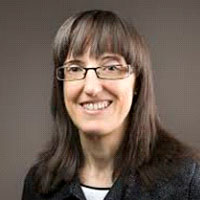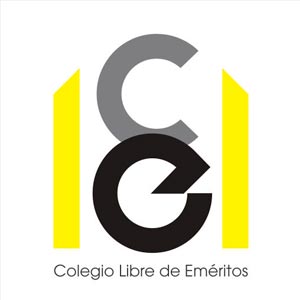Master’s in Continuing Education in Contemporary Humanities: Rethinking Humanism

Facing the Challenges of the 21st Century with a Strong Humanistic, Ethical, and Reflective Foundation
The Master’s in Contemporary Humanities: Rethinking Humanism de la Universidad Nebrija, at Nebrija University, in collaboration with the Colegio Libre de Eméritos, is an academic program designed to deepen the study of the humanities from a modern perspective, integrating the challenges and opportunities of today's world. This innovative master’s program seeks to revitalize classical humanism, adapting it to the needs and contexts of the 21st century, while fostering critical reflection on culture, society, technology, and ethics in an increasingly globalized landscape.
In an era marked by rapid technological advancements, shifting social dynamics, and global challenges, the humanities play a crucial role in understanding and making sense of contemporary complexities. This unique program offers an interdisciplinary education, blending philosophy, literature, history, art, ethics, and cultural studies, to prepare professionals capable of critically analyzing reality and developing innovative solutions from a humanistic perspective.
The Master’s program focuses on reinterpreting humanism, meaning reviving the values and principles of traditional humanistic thought and applying them to current issues such as digitalization, cultural diversity, sustainability, and social justice. With a theoretical and practical approach, students will acquire the tools necessary to tackle contemporary challenges with ethical awareness and critical insight.
Read +Main Objectives:
- Deepen knowledge of the humanities and their relevance in today’s world.
- Foster critical thinking and interdisciplinary analytical skills.
- Reinterpret classical humanism, connecting it to contemporary challenges.
- Encourage ethical reflection on key topics such as technology, globalization, and cultural diversity.
- Train professionals to apply humanistic values in diverse fields, including education, culture, communication, and social management.
Program Structure:
The master's program is structured into modules that explore various areas of the humanities, blending theory and practice to provide a comprehensive and interdisciplinary education. Key topics covered include:
- Humanism and Technology: The impact of digitalization on society and culture.
- Ethics and Globalization: Moral challenges in an interconnected world.
- Contemporary Art and Culture: The role of art in shaping identities and narratives.
- Literature and Critical Thinking: Analysis of literary texts and their relevance to current issues.
- History and Memory: The significance of historical memory in shaping the present.
Choose Your Learning Path
Flexible, partial enrollment options are available based on each student’s availability and interests. Students may choose to attend 10-hour seminars or enroll in full Master's modules:
- Continuing Education Seminars (2.5 ECTS): 20 seminars, with no restriction on the admission profile regarding academic degree.
Seminar fee: €250. - Microcredentials (12.5 ECTS): Continuing education courses, with no restriction on the admission profile in terms of entry-level qualification.
Micro-credential fee: €1,150. - Expert Diploma. Micromaster’s Program with 25 ECTS credits. Awarded upon completion of two Master's modules. Requires a previously earned university degree.
Expert Diploma fee: €2,250. - Specialization Diploma. Micromaster’s Program with 37.5 ECTS credits. Awarded upon completion of three Master's modules. Requires a previously earned university degree.
Specialization Diploma fee (37.5 ECTS): €3,375. - Specialization Diploma. Micromaster’s Program with 50 ECTS credits. Awarded upon completion of all four Master's modules. Requires a previously earned university degree.
Specialization Diploma fee (50 ECTS): €4,000. - Four modules + Master’s Thesis6. Four modules + Final Master’s Project (10 ECTS credits): Continuing Education Master’s Degree with 60 ECTS credits. Requires a previously earned university degree.
Total fee: €4,500.
The program is completed in two academic years

With the Best Partner
The Colegio Libre de Eméritos is one of the most active institutions in Spain in the field of cultural and scientific outreach and promotion. Founded in 1986, it brings together academic excellence from both university and non-university institutions, offering expertise from over one hundred distinguished professors. [+info]

Hybrid Learning Modality
The Master’s program is offered in hybrid mode, combining face-to-face sessions at our new Languages and Education Campus in Madrid-Arturo Soria—located in one of Madrid’s most exclusive residential areas—with online learning, enabling students to balance academic, personal, and professional commitments while maintaining the rigor and excellence of Nebrija University.
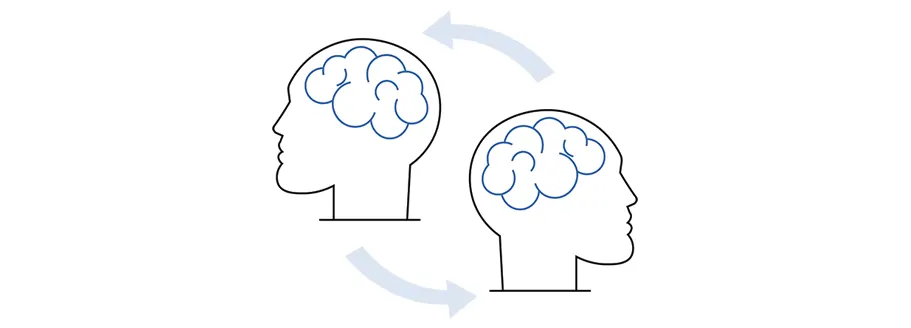
Interdisciplinary Approach
One of the most distinctive aspects of this Master’s program is the diversity of perspectives that enrich the classroom experience. Students come from varied academic backgrounds and cultures, fostering an engaging and dynamic dialogue. The goal is for them to understand the role of history and memory in shaping the present and become agents of change in their fields.

Elige tu itinerario formativo
Posibilidad de matrícula parcial en función del tiempo y los intereses del estudiante, pudiendo cursar seminarios de 10 horas de clase o módulos completos del Máster.
Curriculum
Continuing Education
Students must complete 60 credits
Module 1
Culture, Enlightenment, Humanism
- 1. Humanism and Antihumanism. Professor: José Luis Pardo
- 2. Law and the Two Cultures. Professor: Manuel Atienza
- 3. Multiculturalism. Professor: Ramón Rodríguez
- 4. Deconstruction and Social Constructivism. Professor: María José Callejo
- 5. The Unrepeatable Human. Professor: Fernando Savater
Coordinator: Fernando Savater
What does it mean to be human? Is it merely a biological or zoological classification? While this perspective serves a basic descriptive purpose, humanity is not solely a matter of classification—it is also a value-driven construct. Our humanity carries an inalienable moral dimension; unlike animals, we do not inherit it automatically through our genes. Instead, we actively shape it through freedom and personal agency. A tiger or an eagle cannot be "inhuman," but a human being can—paradoxically, inhumanity is one of the possibilities of human will. This section of the master's program explores the construction of humanity in its many facets, examining how human identity is culturally invented. Ultimately, students will delve into the essential qualities that define the irreducibly human.
Seminars:
Module 2
Humanism, Rights, and the Social Contract
- 1. Citizenship, Identity, and New Rights. Professors: Pablo de Lora and Josu de Miguel
- 2. The Humanist Legacy: Moral Concepts and Civic Virtues. Professor: Manuel Toscano
- 3. Feminisms and Gender. Professor: Amelia Valcárcel
- 4. Liberalism, Democracy, and Socialism. Professors: Félix Ovejero and Juan Antonio Cordero
- 5. Political Correctness and Cancellation. Professor: Darío Villanueva
Coordinator: Félix Ovejero
Human rights, inseparable from the concept of citizenship, represent one of the greatest intellectual achievements of our culture. Since their formulation, they have continuously expanded—both in scope (more rights) and in depth (greater expectations for their application). However, this evolution has also led to trivialization, with any demand, whether justified or not, often framed as a human right (e.g., the right to happiness). Naturally, tensions and contradictions have emerged: some rights conflict with others (equality vs. difference); certain groups find themselves at odds (LGBT, etc.); rights are increasingly applied to non-human entities (animals, nature, nations, robots, etc.); some rights collapse under competing claims (freedom of opinion vs. respect for beliefs and emotions). For many, this signifies the obsolescence of Enlightenment ideals, those of rationalism and emancipation. If taken to the extreme, human rights themselves might undermine humanism, one of their earliest sources of inspiration.
Seminars:
Module 3
The Path to the Human Condition: Humanism, Knowledge, Science, and Technology
- 1. The Frontiers of Human Knowledge. Philosophical Experience and Scientific Challenges Regarding the Limits of Knowledge. Professor: Manuel Arias Maldonado
- 2. The Human Being as an Organism. Evolution through Biological and Cultural Adaptation. Professor: Camilo José Cela Conde
- 3. The Scope of Bodily Capabilities. From Sex to Sport. Professor: Javier Moscoso Sarabia
- 4. Uses and Abuses of Human Nature. Science, Technology, and Ideology. Professor: Fernando Broncano Rodríguez
- 5. Can We Transcend Our Bodily Limits? Posthumanism and Transhumanism. Professor: Antonio Diéguez Lucena
Coordinatorss: Camilo José Cela Conde and Fernando Broncano
This module examines humanity as the intersection of natural selection and cultural evolution, exploring how the body and mind develop in response to adaptive challenges through both biological and cultural advancements, with scientific and technological progress playing a key role.
Reflections on humanism in this section emphasize the need to understand the nature and limits of human capacities, raising questions about intellectual, physical, and technological evolution and the implications of scientific discovery for human identity.
Seminarios:
Module 4
The Human in Art
- The Configuration of the Everyday. Public Sphere, Private Sphere, Intimate Sphere. Professor: Anna Caballé
- Emotional Complicity and Social Cohesion. Professor: Paula Kuffer
- The Power of Words and the Word of Power. Professor: Aída Míguez
- Creative Arts and Politics: Dangerous Liaisons. Professor: Andreu Jaume
- Recovering Aesthetic Judgment. Art, Criticism, and the Public. Professor: Andreu Jaume
Coordinator: Andreu Jaume
This module explores the representation of the human experience in art, literature, and thought. Through the analysis of various works and authors, students will examine key themes such as intimacy and identity, the construction of public and private memory, the relationship between nature and the polis, and the critical power of language in relation to authority. The module also addresses the evolution of aesthetic judgment and its significance in shaping society.
Seminars:
Professors
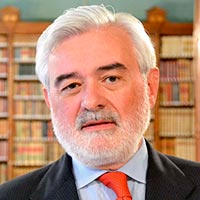 Darío Villanueva
Director del Máster
Director of the Master
Presidente del Patronato de la Universidad Nebrija, exdirector de la Real Academia Española.
Darío Villanueva
Director del Máster
Director of the Master
Presidente del Patronato de la Universidad Nebrija, exdirector de la Real Academia Española.
 Fernando Broncano
Profesor
Professor
Doctor en Ciencias Económicas por la Universidad de Barcelona. Actualmente es Profesor de Metodología de las Ciencias Sociales y Filosofía Política en la Universidad de Barcelona. Ha realizado largas estancias de investigación en las Universidades de Chicago y Madison.
Fernando Broncano
Profesor
Professor
Doctor en Ciencias Económicas por la Universidad de Barcelona. Actualmente es Profesor de Metodología de las Ciencias Sociales y Filosofía Política en la Universidad de Barcelona. Ha realizado largas estancias de investigación en las Universidades de Chicago y Madison.
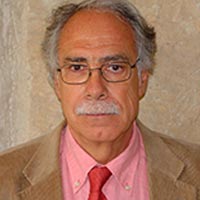 Camilo José Cela Conde
Profesor
Professor
Catedrático de Filosofía del Derecho, Moral y Política. Profesor emérito de la Universidad de las Islas Baleares (UIB). Ha sido profesor de Antropología en la UIB hasta 2016 y profesor investigador en el Departamento de Ecología y Biología Evolutiva de la Universidad de California (Irvine) hasta 2018. En la actualidad ocupa el cargo de Director de Investigación de la Fundación Gabarrón.
Camilo José Cela Conde
Profesor
Professor
Catedrático de Filosofía del Derecho, Moral y Política. Profesor emérito de la Universidad de las Islas Baleares (UIB). Ha sido profesor de Antropología en la UIB hasta 2016 y profesor investigador en el Departamento de Ecología y Biología Evolutiva de la Universidad de California (Irvine) hasta 2018. En la actualidad ocupa el cargo de Director de Investigación de la Fundación Gabarrón.
 Andreu Jaume
Profesor
Professor
Editor, traductor, profesor, poeta y ensayista. Como docente, imparte cursos de literatura comparada en el Institut d’Humanitats de Barcelona, así como en otras instituciones.
Andreu Jaume
Profesor
Professor
Editor, traductor, profesor, poeta y ensayista. Como docente, imparte cursos de literatura comparada en el Institut d’Humanitats de Barcelona, así como en otras instituciones.
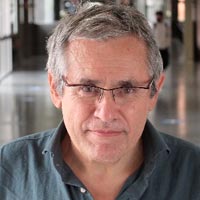 Félix Ovejero
Profesor
Professor
Doctor en Ciencias Económicas por la Universidad de Barcelona (UB), en la que es profesor titular de Economía, Ética y Ciencias Sociales desde 1987. También ha sido profesor visitante en la Universidad Pompeu Fabra (1994, 1995), en el Centro de Ética, Racionalidad y Sociedad de la Universidad de Chicago (1991) y en la Universidad de Wisconsin-Madison (1999).
Félix Ovejero
Profesor
Professor
Doctor en Ciencias Económicas por la Universidad de Barcelona (UB), en la que es profesor titular de Economía, Ética y Ciencias Sociales desde 1987. También ha sido profesor visitante en la Universidad Pompeu Fabra (1994, 1995), en el Centro de Ética, Racionalidad y Sociedad de la Universidad de Chicago (1991) y en la Universidad de Wisconsin-Madison (1999).
 Fernando Savater
Profesor
Professor
Estudió Filosofía en la Universidad Complutense de Madrid. Trabajó como profesor ayudante en las facultades de Ciencias Políticas y de Filosofía de la Universidad Autónoma de Madrid, de donde fue apartado de la docencia en 1971 por razones políticas. Fue profesor de Ética y Sociología de la UNED y en la Universidad del País Vasco durante más de una década. Catedrático de Filosofía en la Universidad Complutense de Madrid durante diez años más hasta su jubilación en octubre de 2008.
Fernando Savater
Profesor
Professor
Estudió Filosofía en la Universidad Complutense de Madrid. Trabajó como profesor ayudante en las facultades de Ciencias Políticas y de Filosofía de la Universidad Autónoma de Madrid, de donde fue apartado de la docencia en 1971 por razones políticas. Fue profesor de Ética y Sociología de la UNED y en la Universidad del País Vasco durante más de una década. Catedrático de Filosofía en la Universidad Complutense de Madrid durante diez años más hasta su jubilación en octubre de 2008.
More Academic Information
Institutional Degree:Master’s in Continuing Education in Contemporary Humanities: Rethinking Humanism
This Master’s program is designed for graduates in humanities, social sciences, philosophy, literature, history, art, and related disciplines, as well as professionals seeking to deepen their understanding of the humanities and their application in today’s world. It is also ideal for those pursuing careers in education, culture, communication, or social management, providing them with a strong intellectual foundation and critical tools to navigate contemporary challenges.
60 credits.
Minimum of 12 ECTS credits and maximum of 60 ECTS credits per enrollment and academic period.
Center responsible:School of Language and Education
Type of Education: Hybrid
Languages: Spanish
Academic year in which it was implemented: 2025-26
Duration: 2 academic years
University Services: [+info]
Employability
Career Opportunities
The Master’s in Contemporary Humanities: Rethinking Humanism at Nebrija University is designed to equip graduates with a wide range of career opportunities across multiple sectors. While the humanities have traditionally been linked to academic careers, this program expands employability prospects by integrating humanistic knowledge with modern professional demands. Below are some of the key fields where graduates can apply their expertise:
- Education and Training:
- Teaching in secondary schools, high schools, and universities.
- Designing educational programs and teaching materials.
- Training in critical thinking, ethics, and communication.
- Culture and Cultural Management:
- Managing cultural institutions (museums, libraries, archives).
- Organizing cultural events and exhibitions.
- Consulting on cultural heritage and historical memory projects.
- Communication and Media:
- Writing and editing for media outlets
- Producing cultural and informational content
- Working in corporate communication and social responsibility.
- Research and Academia:
- Conducting humanities, social sciences, and cultural studies research.
- Developing interdisciplinary projects.
- Publishing specialized articles and books.
- Public Sector and International Organizations:
- Advising on cultural and educational policies.
- Working with international organizations in culture, education, and human rights.
- Leading development cooperation and social projects.
- Private Companies:
- Consulting in business ethics and corporate social responsibility.
- Managing cultural diversity in the workplace.
- Developing internal and external communication strategies.
- Digital Humanities:
- Managing digital projects related to culture and heritage.
- Analyzing cultural data and trends.
- Creating digital content with a humanistic focus.
Career Opportunities
Your Master’s in Contemporary Humanities: Rethinking Humanism

How Social Media Influences Adolescents
An article by Mónica Moreno, professor at Nebrija University, examines the impact of social media on students and how it directly affects the learning process.
See article
Emotional Education in the Classroom
A study by the Institute of Emotional Intelligence and Applied Neuroscience explores the role of emotional education in Spanish classrooms and its significance for student development.
See articleYour Master's Degree in Contemporary Humanities: Updating Humanism
Let’s Talk About Education
The first episode of the specialized video podcast on education, focusing on research processes and their applications in neuroscience and the education sector.

